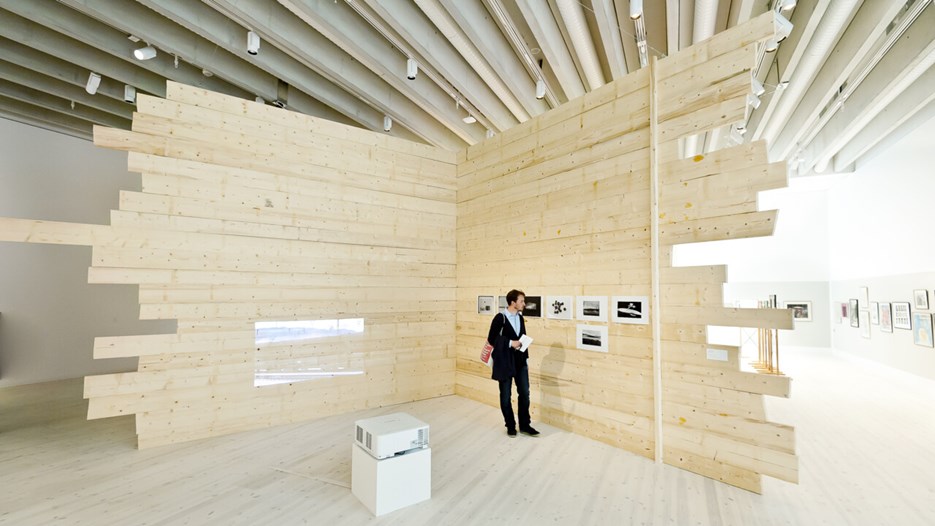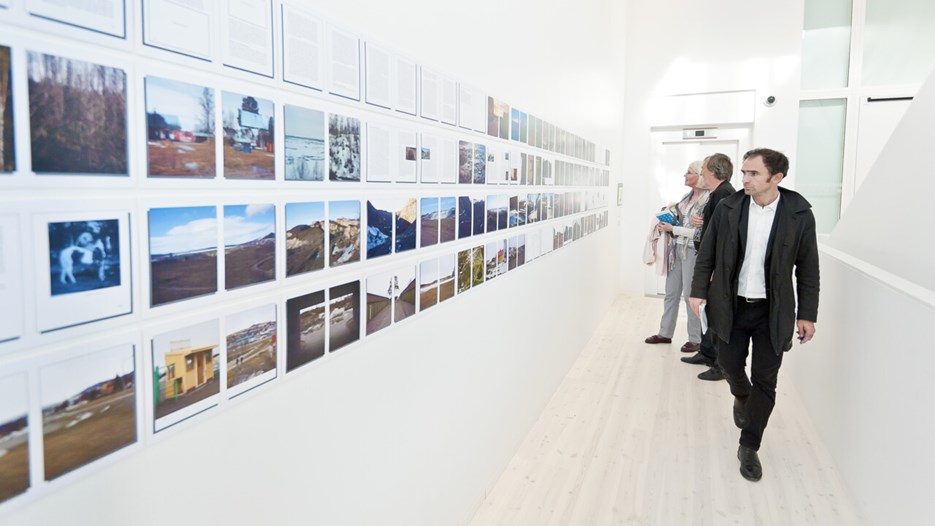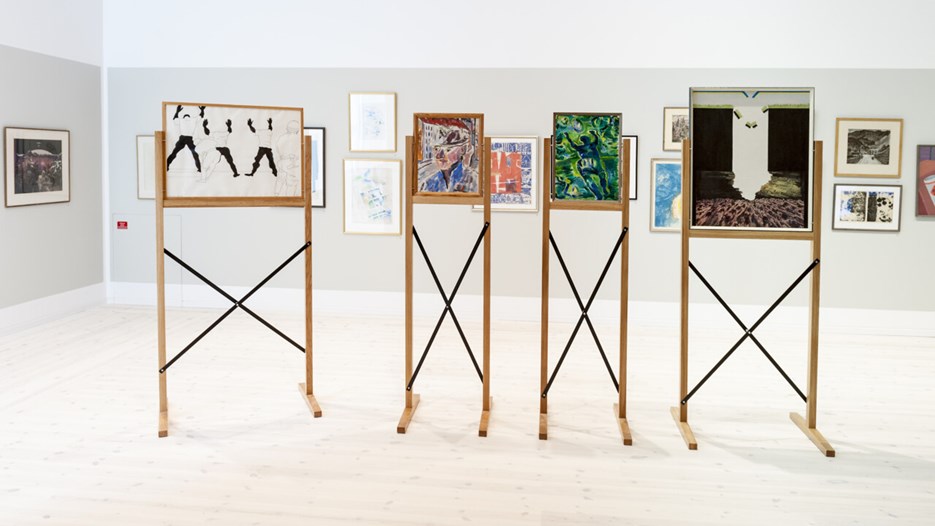
Kirunatopia / In the Shadow of the Future. From the exhibition at Bildmuseet 2012.

Kirunatopia / In the Shadow of the Future. From the exhibition at Bildmuseet 2012.

Kirunatopia / In the Shadow of the Future. From the exhibition at Bildmuseet 2012.
Twelve artists' works based on a town in transition. What processes is a community and its inhabitants undergoing when land areas disappear and new areas are created? What memories disappear and what future images are created?
Kirunatopia / In the Shadow of the Future is an exhibition of international and Swedish artists' works on a city in transition.
The town of Kiruna is situated on top of one of the largest iron ore deposits in the world. The town was founded as a modern project at a time when Norrland was named "Land of the Future" in view of its natural resources. Today the mining has caused cracks in the ground which make the town face a historical transformation - its center has to be moved.
During 2010 and 2011, artists Lara Almarcegui (Rotterdam), Agneta Andersson(Kiruna), Geir Tore Holm (Skiptvet), Dave Hullfish Bailey (Los Angeles), Lina Issa (Amsterdam), Ingela Johansson (Stockholm), Søssa Jørgensen (Skiptvet),Britta Marakatt-Labba (Upper Soppero), Boris Sieverts (Cologne), Ingo Vetter(Bremen) och Florian Zeyfang (Berlin) were offered work- and research time in Kiruna in a project by Goethe-Institut Schweden. For the first time on display, Bildmuseet present the results of their investigations.
The exhibition also features work by artist and filmmaker Liselotte Wajstedt. Her documentary Kiruna - Rymdvägen will premiere during the exhibition period.
The exhibition is installed around a copy of a wooden construction, built after a century-old photograph by Borg Mesch. The original probably served as a protection against the wind when balloons were launched to perform measurements of the ground. Here, in the exhibition, it symbolizes the modernization and colonization of the North.
Kirunatopia / In the Shadow of the Future is curated by Kim Einarsson, Konsthall C and Brita Täljedal, Bildmuseet. The exhibition is a co-production between Bildmuseet, Goethe-Institut Schweden and Konsthall C, in cooperation with Kiruna City Council and Umeå Academy of Fine Arts, Umeå University.